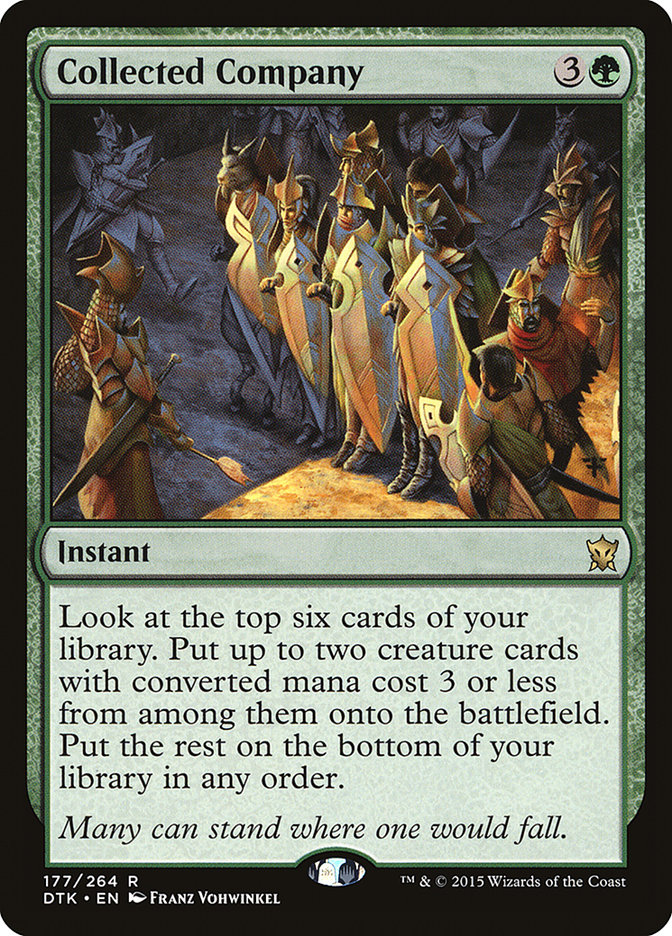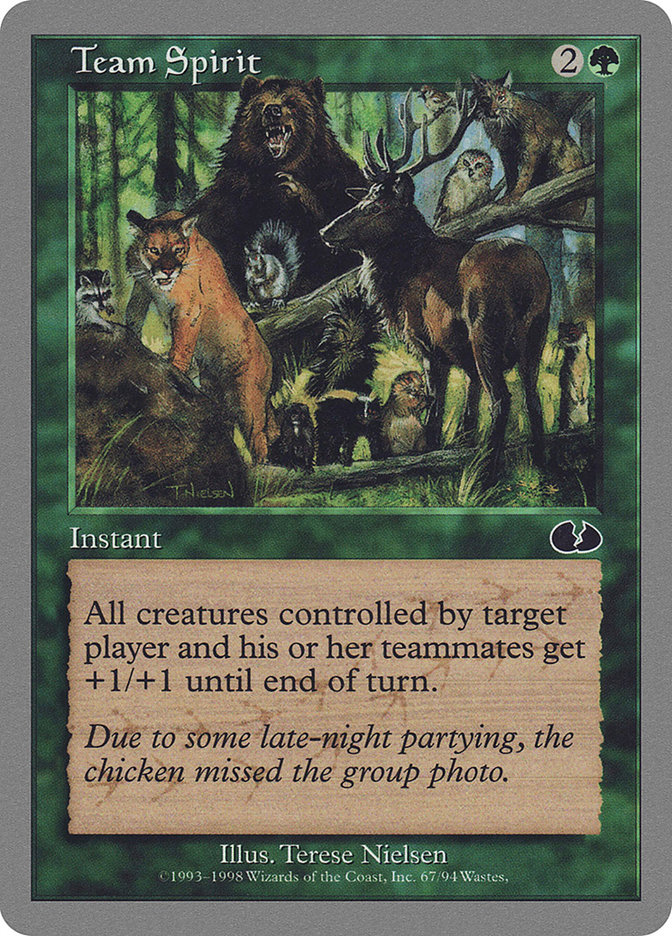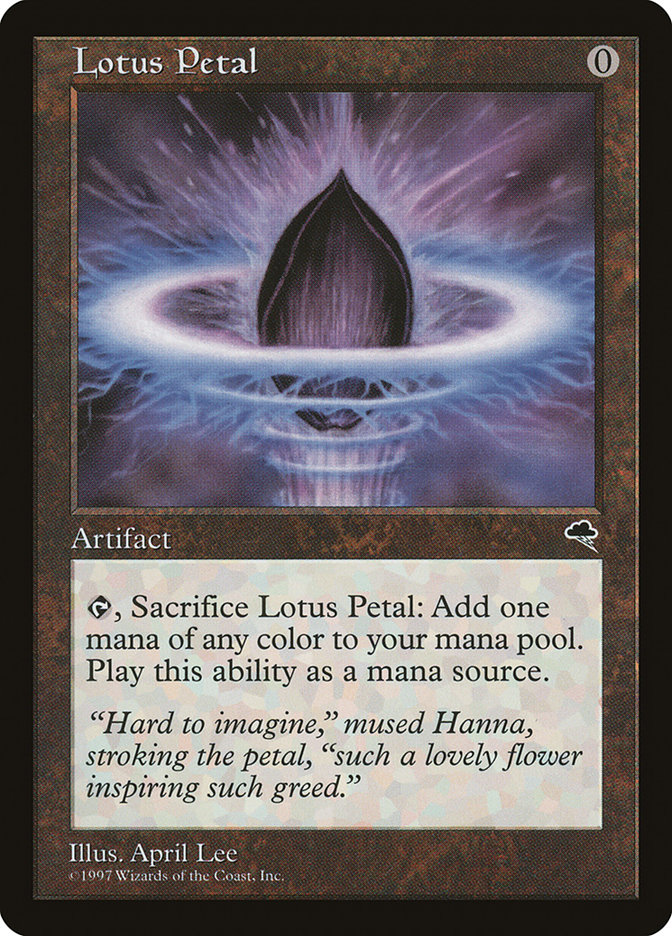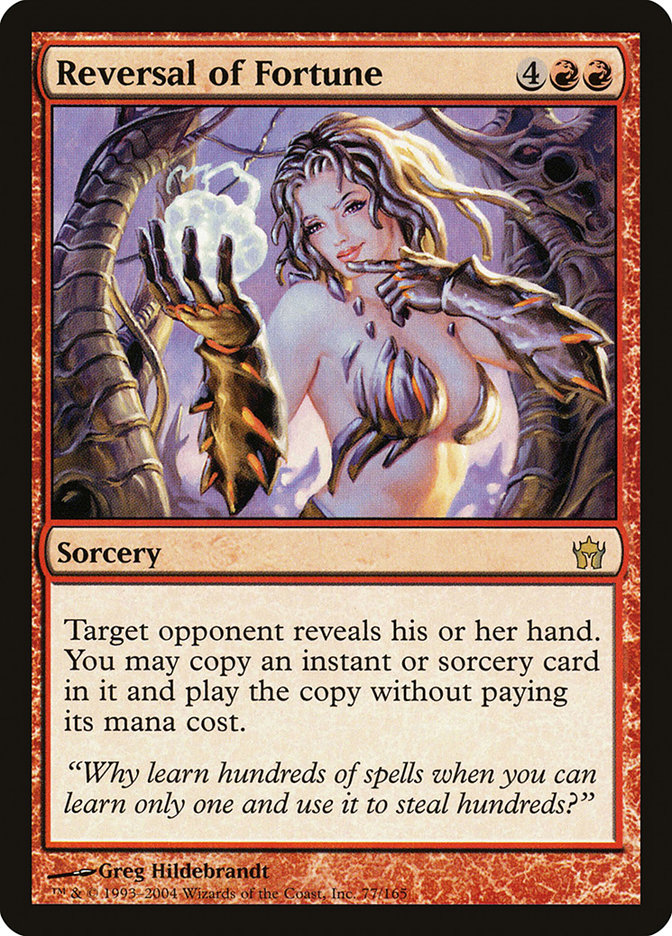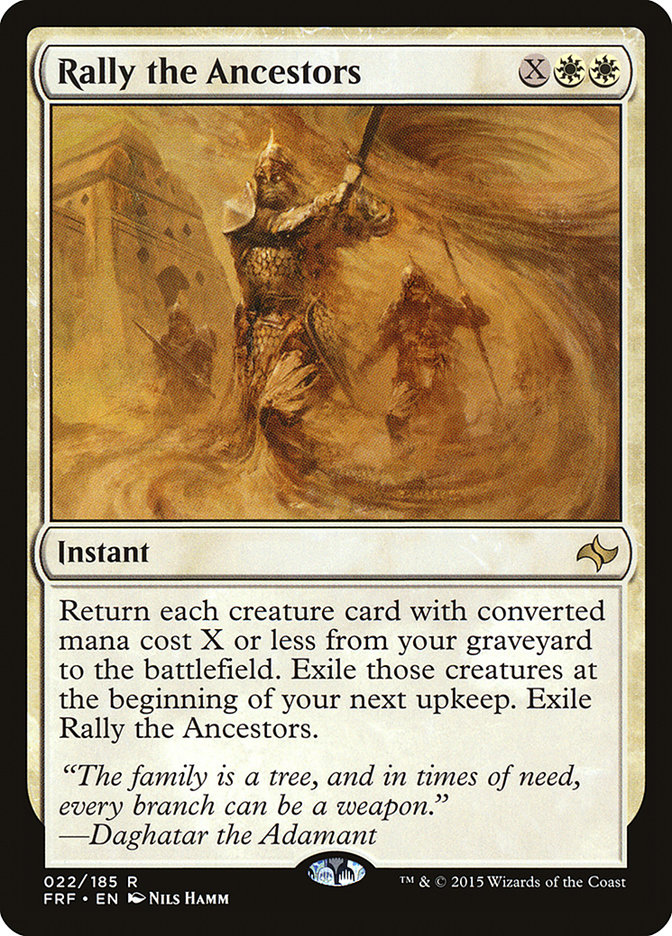A couple of weeks ago, I made the claim that Legacy was Magic’s greatest format. Two things to note here.
· I was wrong.
· I also make a lot of hyperbolic statements for effect. If something is the best ever or the worst ever according to me, that probably translates to “This is pretty good” or “this isn’t very good.” Something for me to work on.
Now don’t get me wrong, Legacy is still awesome, and it is my favorite Constructed format, but I forgot about the actual greatest Magic format. (Which translates to very good, or pretty good, heck it’s all subjective anyway).
Team Sealed
I love team events! It really is a shame that we so rarely get to play in them, but I guess that makes me look forward to every single Team Sealed Grand Prix all the more. Well, luckily for us, the wait is almost over.
Some of the first Magic tournaments I remember playing in were Team Sealed events. Way back in the early 2000s, when there were Team Sealed PTQs, my dad would take me and my brother downtown to play in the Team Sealed PTQ every time Indianapolis got to host an event. We never made it very far, but that wasn’t important. What did matter was that we got to play Magic together.
One of the most appealing aspects of getting to play Magic is being social. The game is wonderful and deep, but at the end of the day, we play so that we can have fun with our friends. I think team formats are the best way to do that in a competitive setting. When you enter a typical Magic tournament, you are on your own. Of course, your friends are still there competing alongside you, but at the end of the day, you are playing one-on-one matches against opponents, and only one person walks away with the Blue Envelope or the Trophy.
Not so with Team Sealed.
When you play in a Team Sealed event, you are entering the event with your friends instead of alongside them. You achieve victory and experience defeat alongside your teammates. When you win, you aren’t just playing for yourself, you are playing for your friends, and your friends are playing for you.
If you are on the fence about attending Grand Prix Washington DC this weekend, take some advice from me.
Go for it. You will have a blast!
Also, in theme with last week’s article, if you have kids who play, Team Sealed is a great format for you to introduce tournament Magic to your kids. You are playing right next to them the entire time, and if they have any questions, they’re allowed to ask you for help.
Since this weekend is all about teams, I thought it would be a good time to write about my experience with my team, and all the fun we’ve had on The SCG Tour® so far this year.
I had a lot of fun playing Magic last year, but by far the two events that I enjoyed the most were the two Pro Tours I played in. The thing I enjoyed the most, however, wasn’t the tournament itself but the week leading up to the events. For Pro Tour Dragons of Tarkir, I was lucky enough to have qualified at the same time as a handful of my other friends. We decided to band together and create a team for the event, and we spent a few days at my house and the week in Brussels trying to solve a fresh Standard metagame and a brand new Draft format.
I had a small amount of experience working on teams in the past, but that was my first opportunity to get to go into the tank with my teammates for a week and really put all of our energy into cracking the Pro Tour puzzle. Our hard work paid off, and Andrew Tenjum and I managed to scrape together 11-5 records that gave us invites back to the next stop on the Pro Tour. That was one of my favorite Magic experiences, and I couldn’t wait to try it again that summer in Vancouver.
For Vancouver, the few of us who made it back to the next Pro Tour joined forces with Team Hot Sauce Games. Similarly to Brussels, we spent a week in Vancouver trying to figure out the Standard format. We even had U/R Thopters for that event, but most of us chickened out at the last second because we felt the deck just wasn’t consistent enough. Oops. Luckily, a few of us decided to stick to playing the deck, and we put a member of the team, Stephen Berrios, into the Top 8 of his first Pro Tour. I personally wasn’t able to match my success in Brussels. I started the event out white-hot with a 5-0 record, but things quickly spiraled out of control and I lost seven matches in a row to eliminate me from the tournament.
It took a couple of days to shake that result off, but the tournament was still one of the most fun events I had ever worked on. The reason these events were so great wasn’t because of the level of prestige or the fierce competition. It was because I was working with my friends to prepare for the tournament.
I spent the rest of last year attending SCG Tour® events trying to qualify for the Player’s Championship, and while I was having a great time playing Magic and traveling with my friends, I still missed the feeling of collaborating with my team in preparation for an event. When the year turned over and I found myself falling short of the finish line, I knew that if I were to grind The SCG Tour® for another year, I didn’t want to do it alone.
What was stopping me from preparing for SCG Tour® events the same way the best in the world prepare for the Pro Tour? I had learned a lot in Vancouver and Brussels, and I was sure that if I could replicate that process for the Pro Tour, then it would give us a huge leg up in the competition for the events next year. Thus Team Lotus was born.
I put together a roster of friends I had traveled with to SCG Tour® events with and collaborated on decks together the previous year, plus some of my old friends I knew had what it takes to crush the Tour when they are on their game. We created a chat group and started working on the first event of the year: SCG Cincinnati.
Things started off slowly for us this year. We only put a few people into Day 2 of the first few Opens of the year and had no Top 8 appearances, but we stayed resilient. We were still building team chemistry and we knew that we had to approach The SCG Tour® as a yearlong event, not just a couple of tournaments. Fortunately, things quickly turned around for us.
Team Lotus had its first taste of success at SCG Columbus. We spent a lot of time preparing for the event and had three decks we were really happy with: Four-Color Rally, Jeskai Black, and R/B Dragons. Six of the seven of us at the event made it to day 2, and we put two players into the Top 8, Jacob Bough and Andrew Tenjum. Jake was able to take the event down with Four-Color Rally, solidifying the deck’s place at the top of the metagame and throwing him right into the thick of the points race! Spirits were high, and we couldn’t wait to take on the next event in Louisville.
We had two weeks to test for the next Open and got straight to work trying to figure out a strong Eldrazi deck for Modern. We knew the tools for something truly powerful was there, but we weren’t exactly sure what the right way to go about things was. Luckily for us, Team East West Bowl got the ball rolling rather nicely at the Pro Tour the week before.
Creatures (33)
- 4 Drowner of Hope
- 4 Endless One
- 4 Eldrazi Skyspawner
- 2 Ruination Guide
- 4 Vile Aggregate
- 4 Eldrazi Mimic
- 3 Eldrazi Obligator
- 4 Reality Smasher
- 4 Thought-Knot Seer
Lands (22)
Spells (5)

After seeing this list, we got to work exploring what other color combinations the Eldrazi could support. We worked on the G/R Eldrazi Ramp deck for a few days, but the Monday before the event, Andrew Tenjum struck gold. He figured out that the Eldrazi are best supported with the most efficient removal we can find. He dipped into white to gain access to Path to Exile as well as Dismember. Adding white also gave us access to the most powerful sideboard cards in the format, Rest in Peace and Stony Silence, as well as a great utility spell in Disenchant. Finally, while losing red meant that we no longer could play Vile Aggregate or Eldrazi Obligator, it did give us access to the deceptively underrated Eldrazi Displacer.
Tenjum came very close to winning the Magic Online PTQ that week but ultimately fell short in the semifinals. However, we knew we had something special for the Open that weekend.
#SCGLOU did not disappoint. We had a great time playing with the Eldrazi villains of the format. Tenjum continued his sick tear, making back to back Open Top 8s, and Kent Ketter added to his collection of second-place finishes while propelling himself into the Top 16 of The SCG Tour® leaderboard as well.
The team experience that we have added to attending SCG Tour® events this year has been nothing but positive. I personally haven’t hit my rhythm, only scraping together a few Day 2 finishes, but I still have been able to experience success with the success my teammates have achieved. We have been able to learn together, improve our preparation together, have fun traveling together, and cheer each other on week-in and week-out. I am having much more fun this year, because for us, every Open is a team event!
Perhaps the coolest part about teams is how easy it is to put one together. At its core, Team Lotus is just a group of friends who made a commitment to help each other get better at Magic. You don’t need to be qualified for the Pro Tour or even crushing the SCG Tour® to create a team of your own. All you need is a group of friends, the determination to get better at Magic, and some basic means of online communication, and you have yourself a team.
You can be a group of friends who attend PPTQs and IQs on the weekends. You could even just work together to try and climb the ranks at your local FNM. The stakes aren’t really important. What is important is that you are working together to have fun and improve your play. There is nothing stopping you and your friends from making your own team.
So go round up your friends, have fun playing Team Sealed this weekend, and start building a team of your own.
See you in D.C. this weekend!


